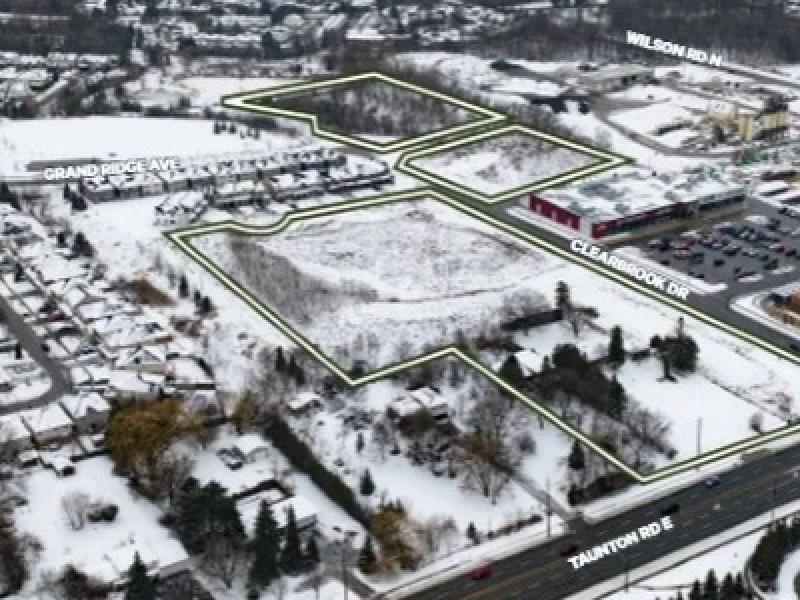
Housing sales have slowed once again, and rents have also decreased in some of Canada’s largest and priciest housing markets.
Several major cities in the Prairies and Quebec, however, have home prices and rents moving upward as people continue to seek affordability, according to two housing reports this week.
Findings from Rentals.ca and Urbanation’s June rent report show average rents nationwide fell 0.8 per cent from May to June, the largest month-over-month decline since early 2021. Rents for all property types increased by seven per cent year-over-year to $2,185 — the slowest annual rate of growth in 13 months.
Vancouver and Toronto, which the report says continue to have the country's highest rents, saw average rent decrease eight per cent and three per cent year-over-year, respectively. Regina, Saskatoon, Edmonton and Quebec City saw some of the highest annual rent increases at 22 per cent, 17 per cent, 14 per cent and 19 per cent, respectively.
“The places that overall have more affordable rents are where people are going. And where people go, demand goes up and when demand goes up, supply can’t always catch up and we see an increase in rent,” Giacomo Ladas, Rentals.ca’s communications manager, told RENX Homes in an interview.
The latest findings run counter to an anticipated uptick in rents during what is usually a busy summer season, he added.
On the for-sale housing front Royal LePage’s Q2 House Price Survey, released this morning, shows a 1.9 per cent year-over-year increase in the national aggregate home price to $824,300 (factoring in all types of for-sale housing). Sales were down in Toronto and Vancouver, but demand was high in the Prairie provinces and Quebec.
“Canada’s housing market is struggling to find a consistent rhythm, as the last three months clearly demonstrated,” Phil Soper, president and CEO of Royal LePage, said in a release accompanying that report.
Toronto and Vancouver see slowdowns
Apartments drove the nationwide increase in rents in June, with the segment increasing 11 per cent year-over-year to an average of $2,121. Condo rents averaged $2,320, rising by 2.6 per cent year-over-year. House and townhouse rent averaged $2,332, increasing by two per cent year-over-year.
Ladas said the apartment market was led by two- and three-bedroom units, as renters seek more living space or a roommate(s) to split the costs.
Rents for condos and apartments in British Columbia were unchanged year-over-year, while rents in Ontario fell one per cent during the period.
In neighbouring west Toronto areas — the City of Mississauga and district of Etobicoke — average rent in June for condos and apartments stood at $2,681 and $2,614, respectively. Mississauga’s year-over-year rent increased by one per cent; Etobicoke’s rent fell one per cent in the same period.
Interest rates have normalized across the country, blunting opportunities for home ownership from renters, Ladas said. With less turnover, people are less likely to become homeowners. To illustrate the impact, Ladas said condo investors have to rent out units at lower prices to recoup losses.
Royal LePage says there was “unseasonably” low sales activity in the Greater Toronto Area, with home prices rising 0.9 per cent year-over-year to $1.19 million. In Greater Vancouver, home prices increased by 3.9 per cent to $1.25 million.
Prospective homebuyers are sitting on the fence in the two markets, with buyers waiting for more rate cuts from the Bank of Canada and for inventories to grow, the Royal LePage report states.
National home prices rose as the number of properties bought and sold fell in an "unusual dynamic," Soper said. Housing inventory in many regions rose as a result, a trend that “dominates” in the Toronto and Vancouver regions.
Prairies, Quebec stay hot
The Prairie provinces saw the highest annual rent increases in June, with Edmonton having the largest rise in apartments among Canada’s six largest cities for the sixth month in a row.
Average rent for condos and apartments in Edmonton rose to $1,564, followed by Regina at $1,393 and Saskatoon to $1,371. Calgary’s year-over-year rent increased more modestly at four per cent, but was the most expensive city to rent in the three midwest provinces (Manitoba, Saskatchewan and Alberta) at an average of $2,092. Year-over-year rent in Winnipeg rose nine per cent to $1,663.
In Quebec City, year-over-year rent increased 19 per cent, raising average rent to $1,640.
Interprovincial migration and remote work continue to be leading causes of rent increases in the smaller markets, Ladas said. As high shelter costs continue to significantly impact Ontario and B.C. residents, and some jobs can be done anywhere with an internet connection, Canadians can move to cheaper housing markets. Conversely, this ends up shrinking supply in those cities.
Soper said low supply and tight competition exists in the Prairie provinces and Quebec.
Aggregate prices for all types of housing in Calgary increased 7.9 per cent year-over-year to $694,000. Edmonton saw a 3.7 per cent increase year-over-year to $450,600; Regina a 2.6 per cent increase year-over-year to $384,800; and Quebec City a 10.4 per cent rise year-over-year to $387,000 - the strongest price appreciation recorded among the country's major real estate markets.
Impact on developers
Ladas expects the latest findings to be a “brief period of softening of rents” rather than a long-term trend.
If asking rents continue to trend down, it could discourage new construction projects as lenders are more hesitant to invest in a softening market, he added.
Developers are holding off on many proposed new projects because of high borrowing and material costs and labour shortages, Randy Ryalls, the general manager of Royal LePage Sterling Realty, said.
“Gradual interest rate reductions could unlock a housing supply logjam,” Soper said.







